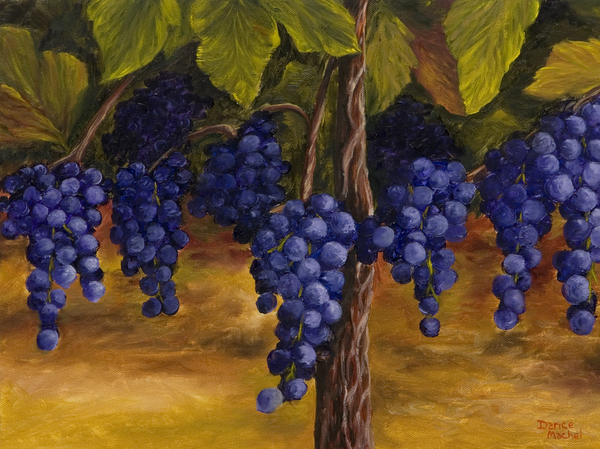 In scripture, the vineyard represents Israel (Isaiah 5:17, Mark 12:1–12). But in John 15:1–17, Yeshua seems to employ the vine image differently. We glean more insight from a parable of Ezekiel:
In scripture, the vineyard represents Israel (Isaiah 5:17, Mark 12:1–12). But in John 15:1–17, Yeshua seems to employ the vine image differently. We glean more insight from a parable of Ezekiel: A great eagle . . .came to . . . a cedar [of Lebanon], . . . broke off its topmost shoot and carried it away . . . He planted it like a willow by abundant water, and it sprouted and became a low, spreading vine. (Ezekiel 17:3-6, excerpted.)The parable goes on to pronounce judgment on the vine–that is, the king of Judah–for breaking the covenant. Then the Lord declares:
I myself will take a shoot from the very top of a cedar and plant it; I will break off a tender sprig from its topmost shoots and plant it on a high and lofty mountain. On the mountain heights of Israel I will plant it; it will produce branches and bear fruit and become a splendid cedar. (17:22–23.)Christopher M. Tuckett observes: “The context of Ezekiel 17 is itself all but explicitly ‘messianic’ in that it refers to the promised restoration of the Davidic monarchy in the form of king Jehoiachin” (“The Parable of the Mustard Seed and the Book of Ezekiel,” The Book of Ezekiel and Its Influence, p. 97). Thus, Yeshua’s claim “I am the true vine,” read together with Ezekiel 17, assumes messianic overtones, which are only heightened when we recognize that the vine of Ezekiel’s parable started out as a branch.
Yeshua goes on to invite each of his disciples into a personal, abiding relationship with him. In his book, The Hasidic Parable, Aryeh Wineman contrasts eighteenth-century Hasidism with “earlier stages of Jewish mysticism in which the mystic remained an isolated individual, not serving as a leader of center of any kind of human community”:
Gershom Scholem defines the innovation of eighteenth-century Hasidism whereby the mystic–who is turned inward and away from society–becomes at the same time the center of a community.Likewise, Yeshua established himself as the center of his community and the source of its life and love. Paul Philip Levertoff calls this love “the realization of the highest ideal of Chasidism–i.e., achdut ‘unity,’ . . . a closeness of union approaching to identity (Acts 4:32).”
We naturally focus on the disciples’ need to abide in Yeshua. But this passage also reveals the amazing dependency of Yeshua on his followers: “You did not choose me, but I chose you and appointed you” (John 15:16). Just as Ezekiel prophesied that the vine “will produce branches and bear fruit,” so Yeshua reveals that he personally chose his disciples “to go and bear fruit—
fruit that will last.” How? “If you remain in me and my words remain in you, ask whatever you wish, and it will be given you” (John 15:7). Praying the way Yeshua teaches means (a) remaining in him by obeying his commands and (b) having his words in us.
As our prayers turn toward the restoration of Israel, we do well to adopt the words of Psalm 80:14–19, which employs the same vine image in a prayer for (Messianic) redemption:
Return to us, O God Almighty! Look down from heaven and see! Watch over this vine, the root your right hand has planted, the branch/son you have raised up for yourself. Your vine is cut down; it is burned with fire; at your rebuke your people perish. Let your hand rest on the man at your right hand, the son of man you have raised up for yourself. Then we will not turn away from you; revive us, and we will call on your name. Restore us, O LORD God Almighty; make your face shine upon us, that we may be saved.



No comments:
Post a Comment